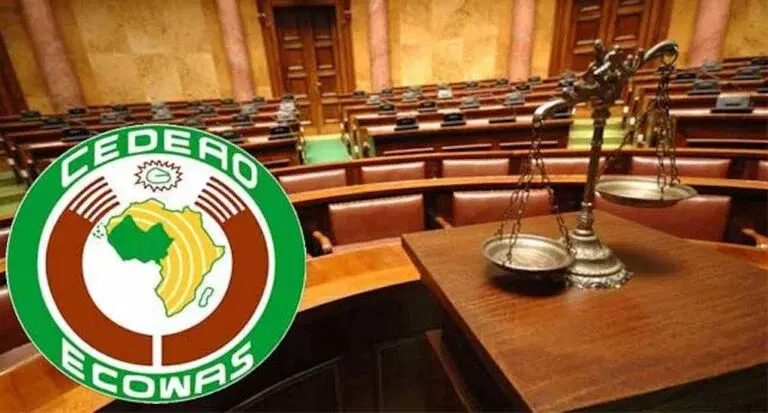
By Innocent Anaba
The President of the ECOWAS Court of Justice, Justice Ricardo Gonçalves, has called for stronger cooperation between national courts and the regional court to enhance justice delivery and strengthen the rule of law across West Africa.
He made the call on Wednesday in Monrovia, Liberia, during the opening of the ECOWAS Court’s Outreach Programme, attended by top government officials, lawmakers, judges, members of the Bar Association, civil society groups, and the media.
Justice Gonçalves said the outreach was part of the court’s efforts to raise awareness about its mandate, jurisdiction, and procedures, while also fostering dialogue with key judicial and civic stakeholders across the region.
He emphasised that the ECOWAS Court of Justice serves as a vital arm of regional integration, ensuring the interpretation and application of Community law and safeguarding the rights of citizens. He noted that the Court’s jurisdiction over human rights has become “a beacon of hope for victims of violations” within the sub-region.
“Through its decisions, the court has advanced access to justice, strengthened democratic governance, and provided redress in cases of human rights violations,” Gonçalves stated.
The ECOWAS Court President, however, expressed concern over the non-compliance of some Member States with the court’s judgments, as well as the perception among certain national courts that the ECOWAS Court encroaches on their jurisdiction.
He clarified that the court “fully respects the sovereignty of Member States and the authority of their domestic judicial systems,” stressing that its role is complementary, not competitive.
“The court adjudicates cases involving the international responsibility of Member States under Community law—it does not replace national courts,” he explained.
Gonçalves commended Liberia for its leadership and compliance, noting that it remains one of the few ECOWAS Member States to have ratified all relevant protocols establishing and expanding the Court’s jurisdiction, including its human rights mandate.
To strengthen collaboration, the ECOWAS Court proposed regular judicial dialogues, research partnerships with academic institutions, capacity-building programmes for judges and lawyers, and greater engagement with civil society, women, and youth groups to promote awareness of regional justice mechanisms.
“The ECOWAS Court of Justice is a Court of integration, not intrusion; a Court of cooperation, not competition,” Justice Gonçalves said.
“Through dialogue and partnership, we can ensure that the Court remains a guardian of rights and a pillar of regional integration for generations to come.”
The outreach programme forms part of the ECOWAS Court’s ongoing efforts to bring its operations closer to citizens and promote understanding of its role in advancing justice, peace, and regional cohesion in West Africa.
Source; Vanguard News
